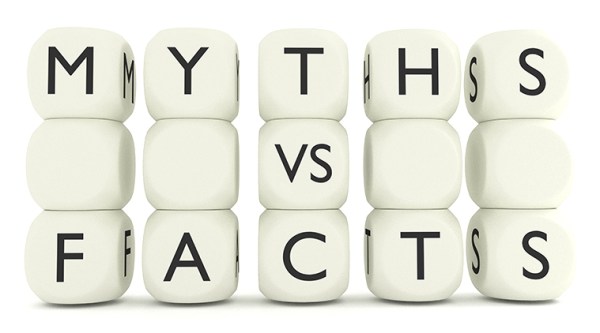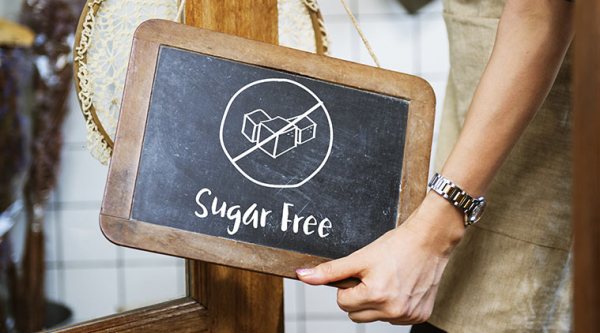Safety is the key concern for any new product that comes to the market and low calorie sweeteners are no exception. While low calorie sweeteners like Sugar Free have risen in popularity in recent years, myths still exist pertaining to their consumption and its alleged side-effects.

We’re all aware that too much of sugar can be a problem for people who are trying to maintain a healthy weight. The World Health Organization (WHO) recommends that sugar frees should constitute less than 10% of a person’s total calories, to reduce the risk of lifestyle diseases and chronic diseases like – diabetes, blood pressure and heart conditions. It’s a known fact that, high consumption of sugars results in obesity among children and adults and that’s what led to the discovery of low calorie sweeteners around 19th century! Low calorie sweeteners are basically food additives that provide sweetness with minimal calories.
Safety is the key concern for any new product that comes to the market and low calorie sweeteners are no exception! While low calorie sweeteners like Sugar Free have risen in popularity in recent years, myths still exist pertaining to their consumption and its alleged side-effects 1. These myths around side effects range from issues like glucose intolerance, increased risk of diabetes and weight gain to absolutely bizarre ones like low calorie sweeteners might lead to cancer.

All the above mentioned warnings may make for good headlines, but in reality, science doesn’t back up such claims. In fact, National Cancer Institute has mentioned in an online factsheet that says, FDA approved low calorie sweeteners have not demonstrated any evidence of an association with cancer in humans. The US FDA has approved aspartame, sucralose, and six other low-calorie sweeteners for dietary use by humans. These sweeteners have been classified under the ‘generally recognised as safe’ (GRAS) category, showing that there is no conclusive proof to establish negative side-effects of any low calorie sweeteners 2 used in Sugar Free. Furthermore, international bodies like European Food Safety Authority’s (EFSA) rigorous review of all available scientific research on low calorie sweeteners has concluded that it’s completely safe at the current level of exposure, implying that Sugar Free is safe3 for consumption.
Every low calorie sweetener like Sugar Free that makes it to your tabletop has to go through a long journey of safety and regulatory standards. Safety and regulatory bodies make sure that sugar substitutes like Sugar Free are safe for human consumption and yield positive results. Each and every low calorie sweetener has to go through similar battery of tests for legal approval and protocols. The toxicology studies take years sometimes and even decades before reaching the conclusive safety evidence. In India, low calorie sweeteners like Sugar Free are regulated by FSSAI, which approves low calorie sweeteners based on their claims and recommended ADI.

Speaking on the safety of low calorie Sweeteners, Dr. Rebeca López-García, Toxicology and Regulations Expert, said, “We know that low-calorie sweeteners are safe because as food additives they have to go through an extensive evaluation to get legally approved. So even if each country has its own systems basically the protocols are the same. The evaluation starts with simple studies on molecules and moves to complex studies where their digestion, excretion, and effect on the body are studied. If at any point during the evaluation process the molecule shows a toxic effect, no further studies are conducted and the product never enters the market. Toxicology studies are conducted based on internationally approved protocols and sometimes take up to 20 years to complete. After completion of all studies, international or local authorities look into these petitions and also call for international data. After a profound analysis of all the data available, authorities come up with recommendations.”
Overall, consumers can be confident that, low calorie sweeteners like Sugar Free are safe components for their diet because of the thorough regulatory framework for their approval. They not only offer the taste of sweetness with fewer calories, but could also be one of the answers to effective weight reduction when consumed in safe, recommended quantities. Incorrect knowledge often results in incorrect healthcare choices which has long lasting effects on individuals. And, if you’re worried about exceeding the acceptable daily Intake levels, note that they’re too large in numbers and you’re unlikely to exceed them.
References and links –
1. Sylvetsky AC, Rother KI. Trends in the consumption of low-calorie sweeteners. Physiol Behav. 2016 Oct 1; 164(Pt B): 446-50.
2. Sharma A, Amarnath S, Thulasimani M, Ramaswamy S. Artificial sweeteners as a sugar substitute: Are they really safe? Indian J Pharmacol. 2016 May-Jun; 48(3): 237-40.
3. EFSA. EFSA completes full risk assessment on aspartame and concludes it is safe at current levels of exposure [Internet]. 2013 Dec 10 [cited 2019 Oct 30]. Available from: https://www.efsa.europa.eu/en/press/news/131210
Disclaimer
Views expressed herein are personal views of Zydus and this article does not express views of IE Online Media Services Pvt. Ltd. or indianexpress.com. The content is intended for informational purposes only and it should not be treated as a substitute for professional medical advice, diagnosis or treatment.
Source: Read Full Article



